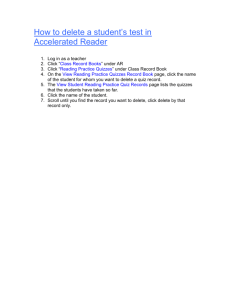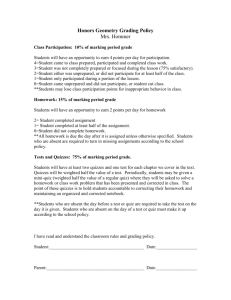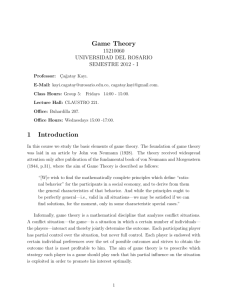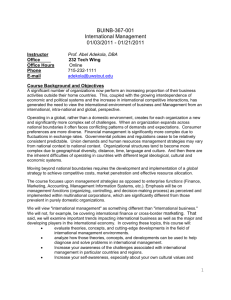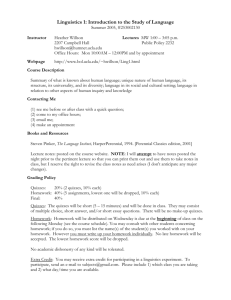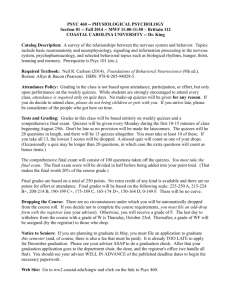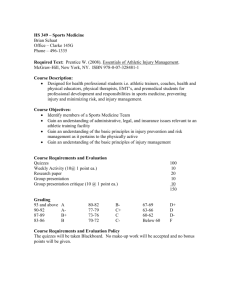Prove-to-me-that-you`ve-done-the
advertisement
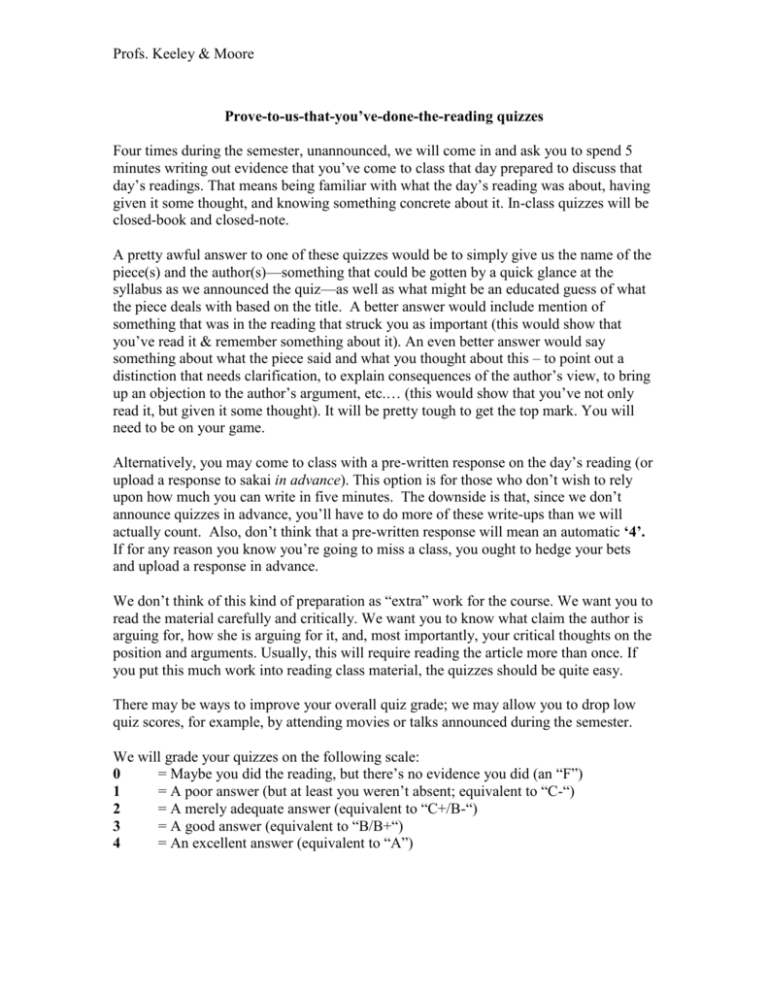
Profs. Keeley & Moore Prove-to-us-that-you’ve-done-the-reading quizzes Four times during the semester, unannounced, we will come in and ask you to spend 5 minutes writing out evidence that you’ve come to class that day prepared to discuss that day’s readings. That means being familiar with what the day’s reading was about, having given it some thought, and knowing something concrete about it. In-class quizzes will be closed-book and closed-note. A pretty awful answer to one of these quizzes would be to simply give us the name of the piece(s) and the author(s)—something that could be gotten by a quick glance at the syllabus as we announced the quiz—as well as what might be an educated guess of what the piece deals with based on the title. A better answer would include mention of something that was in the reading that struck you as important (this would show that you’ve read it & remember something about it). An even better answer would say something about what the piece said and what you thought about this – to point out a distinction that needs clarification, to explain consequences of the author’s view, to bring up an objection to the author’s argument, etc.… (this would show that you’ve not only read it, but given it some thought). It will be pretty tough to get the top mark. You will need to be on your game. Alternatively, you may come to class with a pre-written response on the day’s reading (or upload a response to sakai in advance). This option is for those who don’t wish to rely upon how much you can write in five minutes. The downside is that, since we don’t announce quizzes in advance, you’ll have to do more of these write-ups than we will actually count. Also, don’t think that a pre-written response will mean an automatic ‘4’. If for any reason you know you’re going to miss a class, you ought to hedge your bets and upload a response in advance. We don’t think of this kind of preparation as “extra” work for the course. We want you to read the material carefully and critically. We want you to know what claim the author is arguing for, how she is arguing for it, and, most importantly, your critical thoughts on the position and arguments. Usually, this will require reading the article more than once. If you put this much work into reading class material, the quizzes should be quite easy. There may be ways to improve your overall quiz grade; we may allow you to drop low quiz scores, for example, by attending movies or talks announced during the semester. We will grade your quizzes on the following scale: 0 = Maybe you did the reading, but there’s no evidence you did (an “F”) 1 = A poor answer (but at least you weren’t absent; equivalent to “C-“) 2 = A merely adequate answer (equivalent to “C+/B-“) 3 = A good answer (equivalent to “B/B+“) 4 = An excellent answer (equivalent to “A”)




